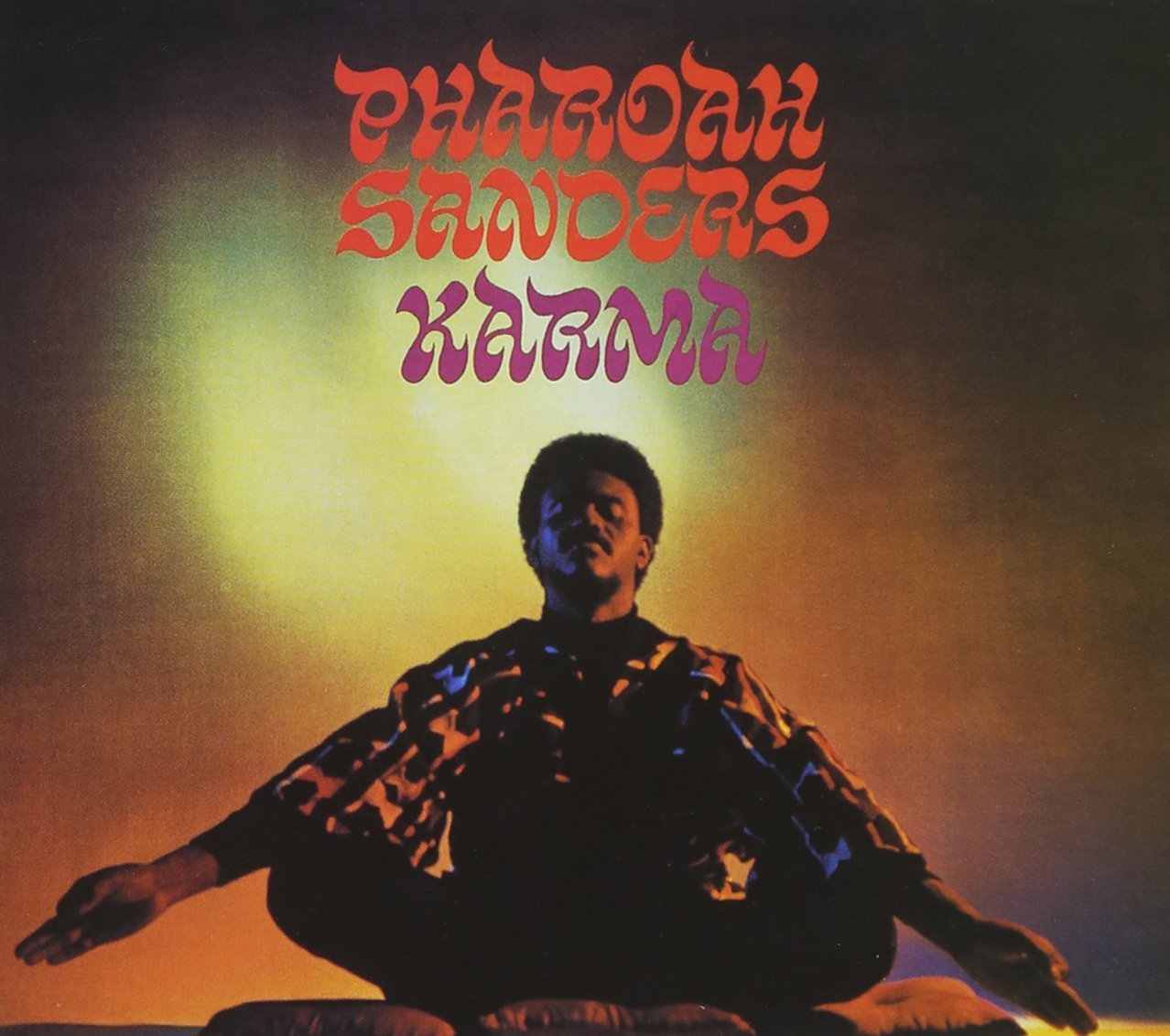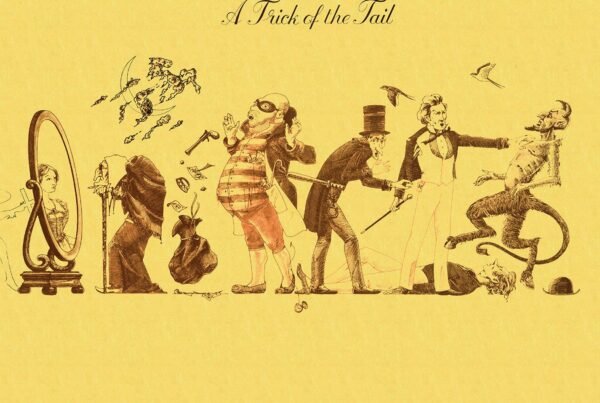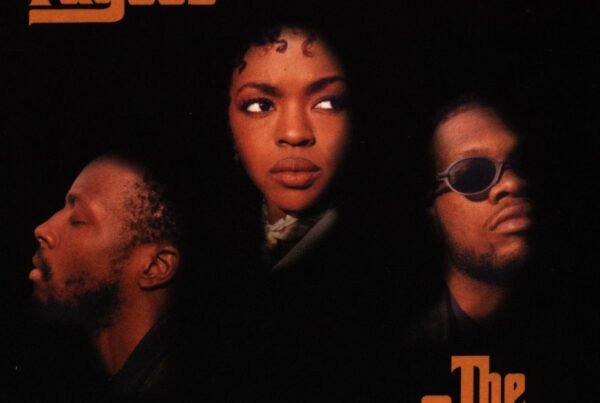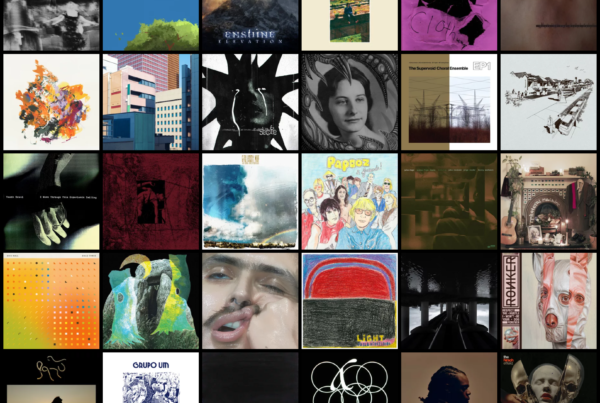I don’t think we’ve ever delved this far into the past on A Scene In Retrospect. This episode takes us all the way back to 1969, where one of the true masterpieces of free/spiritual jazz was released: Karma by legendary tenor saxophone player Pharoah Sanders, who will actually celebrate his 79th birthday tomorrow on October 13. That’s exactly why I decided to seize this opportune moment to talk about one of jazz’s last remaining true vanguards and one of his most awe-inducing achievements. To this end, I’m joined by my dear colleagues Inter and David; together, we try to grasp the magnitude of this milestone record.
David Rodriguez
Spiritual jazz is a trip. Built on transcendence and freedom – spiritual, political, societal, etc., especially as it pertains to the black experience in 1960s America – it twisted jazz into a cosmic experience, incorporating worldly influences into its sound. A product of its time, it was indebted to the era of civil rights as well as psychedelia, or perhaps it’s the other way around? Sun Ra was always a go-to for me; I was woefully unaware of other artists like Pharoah Sanders, a tenor saxophone player whose work we’re focusing on here today. Now that I’ve stated the obvious, let’s get into this two-track experience.
Spiritual, cosmic jazz like this expresses itself a lot differently than the spacey prog I’m more accustomed to. At least when it comes to Karma, the music is ‘always on’ as it were. Atmosphere exists, but it’s baked into the sonics themselves, as opposed to established by sparseness of music. Fluttering flute, crispy shakers and other percussion, yodeling…wait, what? Yeah, vocalist Leon Thomas contributes some yodel-esque vocalizations inspired by African Pygmies.
Of course, we must mention the saxophone, as evocative as it is mystical. Warm leads with buzzy high notes, turbulent screeches, and more radiate from Sanders’ brass. In my research, I learned that he was a mentee of John Coltrane, which explains the versatility and craft of his performance. As a leader of a jazz ensemble, Sanders is quite adept at knowing when to hold back, when to push out, and how to guide his fellow musicians. Nothing is ever too much, everything is never not enough – a delightfully well-rounded experience.
It’s all in greater service to Karma’s mood, particularly on the setpiece “The Creator Has A Master Plan”. The other song – an epilogue of sorts – “Colors” is equally ethereal, though it takes a slightly more grounded approach. There’s still celestial qualities to it, melting the known colors of the world around me as I bask in all the textures the song has to offer.
It’s with Pharoah Sanders that I see a clear progeny to modern greats like Kamasi Washington, who I love. The reason why Karma is on this feature is because of how singularly great it is, but also because it helped forge a path for others to take when creating their own jazz compositions. Enlightenment comes in many forms, and this is one classic trip well worth taking.
Inter
It’s not often that I can talk about a jazz epic in those features, but thanks to the creator’s master plan, I can talk about Pharoah Sanders‘ Karma today, which is a really satisfying thing. Coincidentally, this record turned 50 in 2019. So let’s celebrate this ‘on-the-brink-of-being-an-old-man’ album for its timelessness, energy and creativity.
Pharoah Sanders is an interesting figure in the jazz pantheon. Inspired by spiritual topics, ranging from all sorts of mythology over western religion to esoterism, he was always a wild card in terms of jazz, making free jazz accessible to people who weren’t into the too wild stuff. Nothing shows this better than “Karma”. Working closely with the late great Leon Thomas, Sanders guided his band as the leader through jazz mantras and expressive passages, which managed to never meander into chaos or cacophony. Rather, he embraced slight afrobeat elements and smooth jazz vibes, primarily brought to the table by Thomas’s subtle, yet shamanistic delivery of his famous glottal-stop singing style.
Karma consists of only two track, with “The Creator Has A Master Plan” as the heart and soul of the album, clocking in at nearly 33 minutes, and the second track “Colors” being the cherry on top.”Creator” is definitely one of the most defining works in jazz the world has ever encountered, since its changes in mood, tempo, and tone go down so vibrantly and elegant that it puts a lot of other try-outs on that matter to shame. Sanders deliberately bursts into powerful sax extravaganzas, elevating this piece to the edge of chaos, without getting lost of it. This underlying sensibility to know exactly which place every note should take in a world of free jazz makes not only “The Creator Has A Master Plan”, but also Sanders’ work as a whole so special. “Colors” works as a glorified outro in some ways, with Leon Thomas channeling his inner Frank Sinatra to farewell the audience into a better tomorrow. A charming cheesyness accompanies the little hints of wildness, before it ends with grandeur and elegance. A true jazz masterpiece, and a must-listen for every music fan.
Dominik Böhmer
Fun fact: I own a CD copy of this album signed by the man Pharoah Sanders himself. I found it at a used record shop, of all places – who in their right mind would just pawn off such an amazing record like that, especially when it evidently passed through the hands of its legendary creator? It’s preposterous! You know what they say, though: one man’s trash is another man’s treasure, and what a treasure it is to me. So to whoever gave up this gem so it can find its way into my possession: thank you. May the sun shine gently upon you for the rest of your days.
In my own – very humble – opinion, Karma is one of the key achievements in the free jazz canon, and Sanders one of the genre’s true cornerstone performers. His keen sense of spirituality and mysticism is almost palpable in every movement of his songs, and nowhere is that more apparent than on “The Creator Has A Master Plan”. Even the first few minutes of this behemoth track should be enough to convince you of the sublime magic that surrounds us at any given moment – they are a prayer at sunrise, a resounding affirmation raised towards the sky with outstretched hands. It’s an incredibly powerful moment in jazz history, and it’s only the beginning of this journey.
Along with his star-studded cast of sidemen (including one Lonnie Liston Smith on piano and Leon Thomas on vocals and percussion), Sanders leads the listeners through rich, overgrown valleys and over majestic mountaintops, evoking a beautiful sense of awe and wonder in a genre that’s often dismissed as an emotionless exercise in technique by outside watchers. If this piece doesn’t touch something deep within your soul at least once over its entire runtime, I’m willing question your sincerity.
“Colors” is a send-off befitting of the musical pilgrimage we undertook over the previous 33 minutes. It’s a joyous and hopeful greeting extended towards every new tomorrow, a call for the open spirit to enjoy all the little things life has to offer each and every day. And then, our journey is over, and we’re left to ponder what we have learned about ourselves and the world around us along the way. If nothing else, maybe now you can see why Pharoah Sanders is my favorite jazz musician of all time.
I’m afraid that’s all for now; thank you for lending us your ears (or rather, eyes) for a little while. I’m thankful to have had the opportunity to spread the word about this special album that’s so dear to my heart to all of you today. What are your thoughts on/experiences with Pharoah Sanders, and Karma in particular? Please feel free to leave them in the comments if you want to share them with us! Tune back in fourteen days from now for another look back at a classic record.







3 Comments